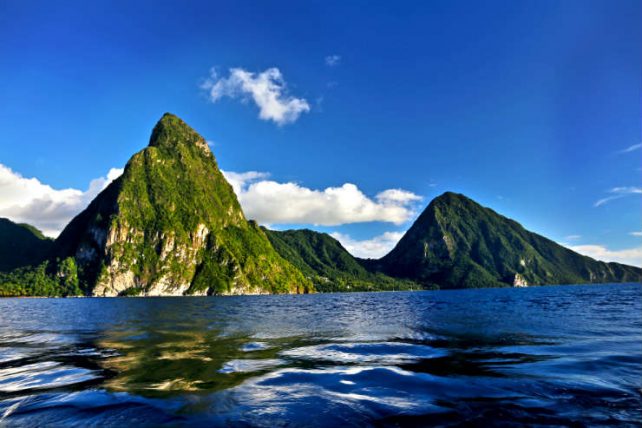
Following consultations with stakeholders in the industry, the Saint Lucia government will be introducing a tourist accommodation fee to be used for destination marketing and development.
As of April 1, 2020, stayover visitors to Saint Lucia will be required to pay an accommodation fee on their nightly stay on the island. All accommodation providers on the island (hotels, guest houses, villas, apartments etc.) will be required to collect from their stay over guests US$3.00 and US$6.00 respectively on a nightly rate below or above US$120. The fees will be paid by the stayover visitor and collected by accommodation providers who will remit the fees collected to the government via the Saint Lucia Tourism Authority.
Guests at accommodation services sourced through sharing platforms such as Airbnb and VRBO will be subject to an accommodation fee of 7% on the full cost of the stay.
The tourist accommodation fee will be used to finance the destination marketing activities undertaken by the Saint Lucia Tourism Authority (SLTA) as it promotes Saint Lucia’s tourism product worldwide and particularly in key markets within the US, Canada, the Caribbean, the United Kingdom and Europe. The fee will also be used to support village tourism development and destination management and development of the local product in Saint Lucia. The intention is to strengthen the SLTA’s ability to increase its marketing of the destination and to support tourism development in Saint Lucia with the collection of a fee that correlates to visitor arrivals.
Saint Lucia attracts up to 350,000 stay-over visitors to its shores every year. SLTA has set a target of 541,000 stay-over visitors by 2022. SLTA wants to increase airlift seat capacity and load factor on all flights into Saint Lucia to 85%. SLTA is also working towards increased awareness of brand Saint Lucia. The SLTA’s annual budget for marketing and promotion is approximately $35 million.
The business of promoting a tourism destination is becoming increasingly challenging and highly competitive as countries worldwide try to capture a greater share of the growing tourist market. Given this, it is now common practice for countries to finance the marketing of their tourism product through an accommodation fee or levy paid for by stayover visitors to the destination.
More established destinations with far greater resources than Saint Lucia such as Canada, the US and Italy all make use of accommodation fees for destination marketing purposes. In addition, many Caribbean countries such as Jamaica, Barbados and Belize and those within the OECS including Anguilla, Antigua and Barbuda, St. Kitts and Nevis and Saint Vincent and the Grenadines, have implemented accommodation levies. These levies are often applied on a per room, per night basis and are sometimes scaled (tiered) based on the type of property. As configured, Saint Lucia’s Tourist Accommodation Fee is among the lowest in the OECS and CARICOM, and other well-established tourist destinations globally. Saint Lucia’s fee structure is similar to the Maldives.
The Saint Lucia Tourism Authority is establishing a process to allow accommodation providers on island, international tour operators and booking websites to easily remit the fees they collect from stayover guests. The system has built-in mechanisms to verify that the information being provided is accurate. Given that an automated system for remitting the fees collected from guests will be utilised, the cost to accommodation providers will be negligible.
Tourism Minister Hon. Dominic Fedee says destination marketing benefits all players in the industry – accommodation providers, airlines, tour operators, travel agents, ground handlers, sites and attractions. He further commented, “It’s always a challenge for small countries to allocate much-needed resources towards tourism marketing. The accommodation fee allows tourism to pay for itself, as the tax will be levied to tourist to the island. It frees up much-needed funds for healthcare, education and national security.”

stupid move, after that season when the visiting numbers drops significantly they will remove this.
This may put a dent in their tourist population of visitors. Tourists get tired of being gouged. Everybody isn’t rich. Many have to save up for vacations over time.